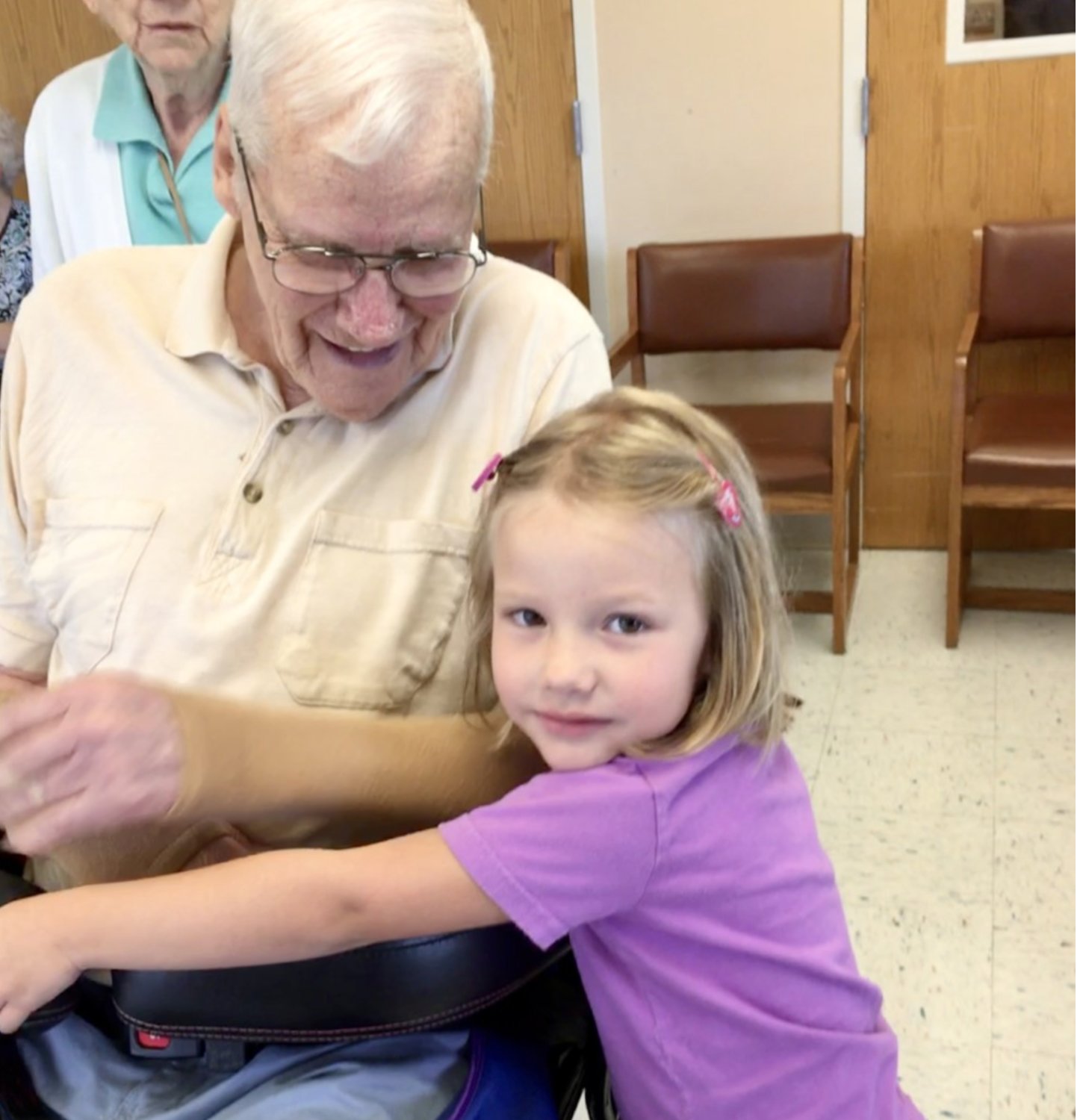A girl's hero: Third-grade student wins film award for documentary on her great-grandfather, a champion for veteran’s rights
For most 8-year-olds, heroes are comic book characters. They fly or swing hammers, always in the flashiest costumes. For Rheagan Howe, a hero is her great-grandfather, Arla Harrell, a World War II …
This item is available in full to subscribers.
Attention subscribers
To continue reading, you will need to either log in to your subscriber account, or purchase a new subscription.
If you are a current print subscriber, you can set up a free website account and connect your subscription to it by clicking here.
If you are a digital subscriber with an active, online-only subscription then you already have an account here. Just reset your password if you've not yet logged in to your account on this new site.
Otherwise, click here to view your options for subscribing.
Please log in to continue |
A girl's hero: Third-grade student wins film award for documentary on her great-grandfather, a champion for veteran’s rights
For most 8-year-olds, heroes are comic book characters. They fly or swing hammers, always in the flashiest costumes. For Rheagan Howe, a hero is her great-grandfather, Arla Harrell, a World War II veteran who was poisoned with mustard gas by the U.S. government.
Howe, a third-grade student at Nottingham Country Elementary, recently won an award of merit from the Texas State PTA Reflections Program for a documentary she made about Harrell called “Heroes Around Me”.
In the film, Howe details Harrell’s crusade for veteran’s benefits after the military tested mustard gas on him.
Howe tells the story with the innocence of an 8-year-old, but the gravity of her great- grandfather’s struggle is still evident in her words. “When he went to training camp, the army tested mustard gas on his lungs,” she explained.
Harrell was only 18-years-old when he was “subjected to full-body exposure” to mustard gas. According to statements made by Harrell, his superior officers told him he would be put in prison if he discussed the experiments, which were classified information.
As a result of the mustard gas testing, Harrell suffered from heart disease, emphysema and cancer.
The government initially denied claims that Harrell and other soldiers had been mustard gas test subjects, but Harrell continued a relentless campaign, not only to prove the truth behind his story, but to gain access to healthcare for veterans who were subjected to similar tests by the government.
“My great-grandpa spent 25 years fighting the VA to get health benefits,” Howe explained.
Harrell became a champion for veterans everywhere when he successfully petitioned Sen. Claire McCaskill to create legislation to compensate veterans who had been military test subjects.
McCaskill named the bill the Arla Harrell Bill in Harrell’s honor.
McCaskill described the Arla Harrell Bill as, “A bill to provide for the reconsideration of claims for disability compensation for veterans who were the subjects of experiments by the Department of Defense during World War II that were conducted to assess the effects of mustard gas or lewisite on people, and for other purposes.”
The bill was passed in 2018, only a few months before Harrell died.
Howe was present when her great-grandfather died. Howe’s mother, Bryana Coalson believes the experience of seeing her great-grandfather fight for veteran’s rights, only to die a few months after his bill passed, influenced Howe to film the documentary.
“I think what really catapulted her into trying to tell the story of her great-grandfather was that he had passed away when she was there with him in Missouri when he died,” said Coalson. “It was such a struggle for them to have gone through all of the court systems to fight that legal battle. He basically did his life’s work and then passed away. She was really moved by that.”
Even though her great-grandfather is gone, Howe treasures his memory and the knowledge that he fought for his rights and the rights of others. “I am sad because my great-grandpa died this year, but I know he was a hero to many people, and will always be a hero in my heart,” she said.
The film will be featured at the Austin Veterans Art Festival in November.






